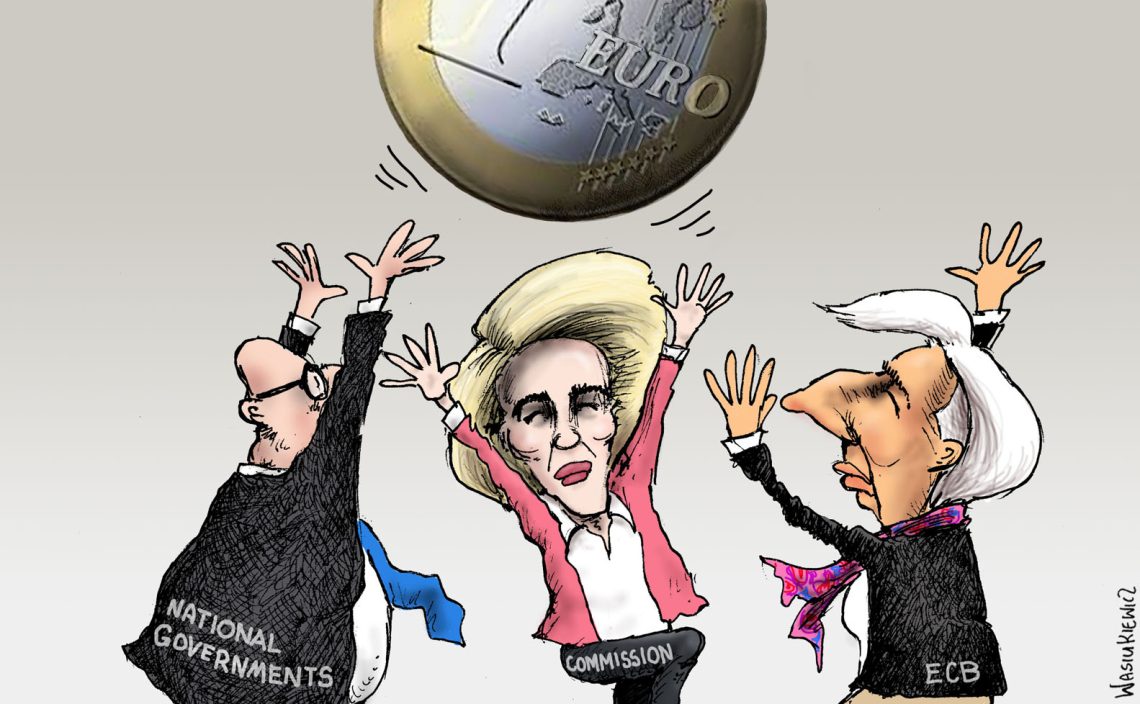The wage-price spiral begins
The European Central Bank’s main role is to preserve the value of money. Ignoring the structural problems that caused inflation will require painful but obvious solutions.

Christine Lagarde, the political appointee who heads the European Central Bank (ECB), is now warning about the adverse effects of inflation. She is cutting a hawkish figure on the scourge and says further interest rate hikes can be expected.
If Ms. Lagarde is really committed to combating inflation, this would represent a big turnaround for the ECB, which has ignored or denied the danger for too long. A little more than a year ago, the prevailing opinion in the institution was that inflation represents no danger. Even when the ugly head of rising prices became apparent at the beginning of the year, the ECB passed them off as temporary blips. Inflation was blamed on supply chain problems due to Covid-19 and Russia’s war against Ukraine.
Astonishingly, the structural problem of excessive government spending and rising public debt was overlooked, for reasons of political expediency, ideological stubbornness or simple ignorance. Logic and common sense could have told anyone who looked at the situation dispassionately that inflation was inevitable.
The important German trade union of workers in the metal and electric products industry recently reached an agreement with employers in Baden-Wuerttemberg, a harbinger of future agreements throughout the nation.
It foresees a wage increase of 5.2 percent through June 2023, followed by another 3.3 percent hike for the following year. Additionally, each worker receives a one-time, tax-free payment of 3,000 euros. Although this increase remains below inflation, the cost for the businesses and, consequently the consumer, will increase. This trend will not be limited to this industry or Germany. But it shows that the era of the wage-price spiral is upon us, both a consequence and a driver of inflation.
Accountability is lacking. Spend-happy national governments are in collusion with lax European Central Bank policies.
Besides this classic problem, we must recognize the following: Over the past decades, the central bank abused its statutes by not preserving the value of money. By excessively financing public expenditures, it broke the rules and acted against any economic logic. Similar acts of intentional abuse, when they occur in private-sector firms, can sometimes be criminally prosecuted.
The central bank lost control of monetary policy and the vicious circle turns further. Rising public spending – supercharged now through special European Union programs such as the planned taxonomy – increases the money supply independent of the central bank. Public guarantees further spur the creation of more credit. All this breaks fiscal best-practice rules.
The ECB is meant to be a guardian of the value and purchasing power of the euro. The idea was to create an institution that is independent of politics. Unfortunately, political appointees have led the institution, creating a power-hungry Frankenstein. The result robs people of their savings and hits pension payments. The public, in other words, pays the debt while losing purchasing power.
Under almost any other circumstances, the management of an institution that oversaw such a disaster would be held accountable and probably fired. In this case, that would be difficult to pull off since spendthrift national governments are in collusion with lax ECB policies. The European Commission is part of this and supported by the European Court of Justice’s upholding of the legality of common obligations. These shenanigans are tolerated by the European Parliament. This is, unfortunately, a typical case of widespread power corruption.
Is a repair of the system possible? It is never too late. But the solutions will be painful. Democracy and the rule of law have become hostages of an overbearing technocracy, which believes it knows better and which sees salvation in centralization. It is necessary to return to more decentralization, subsidiarity and accountability. Governments and administrations must answer to their sovereign, the citizen. Today’s technocracy, however, reverses that hierarchy and makes the average person accountable to the state.
With stronger political accountability and more subsidiarity, the painful process of reestablishing the system can begin. The loss created by past policies will inevitably have to be borne by the citizen for a long time to come. Smooth sailing is not guaranteed. Let us hope that this process will happen in constitutional and peaceful processes.
